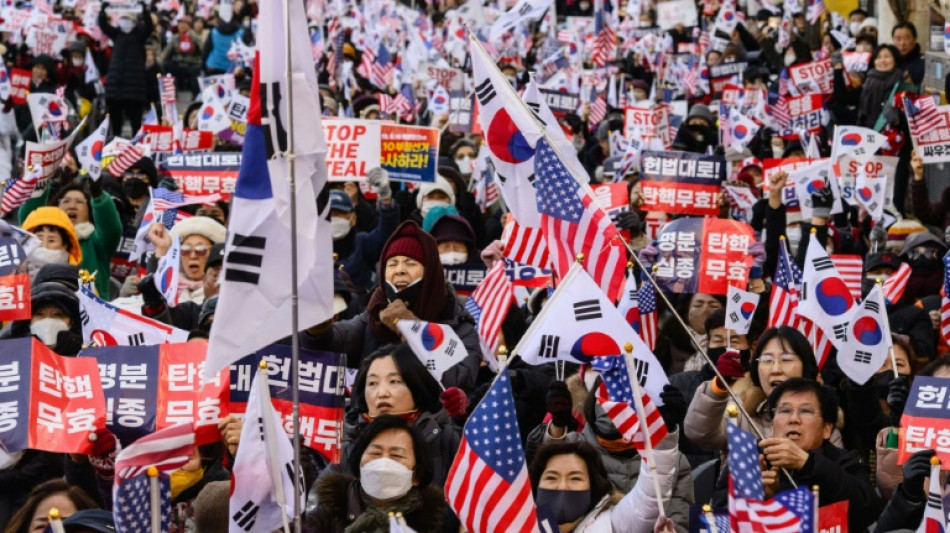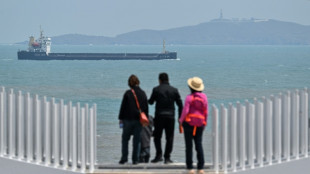

S. Korea court to rule Friday on President Yoon impeachment
South Korea's Constitutional Court will issue its long-awaited ruling on President Yoon Suk Yeol's impeachment Friday, months after he was suspended for declaring martial law.
The court has held weeks of impeachment hearings to determine whether to officially remove Yoon from office, after he was impeached by lawmakers over his short-lived suspension of civilian rule.
"The president's impeachment case verdict will be on April 4, 2025 at the Constitutional Court," the court said in a statement Tuesday.
The Constitutional Court has until June to decide his fate but it has typically issued rulings within weeks for past presidential impeachment cases.
The court has taken longer over the case than expected, giving rise to a surge in speculation with some suggesting the justices must be experiencing intense disagreements.
For Yoon to be removed from office, at least six of the court's eight justices must vote in favour.
Hundreds of thousands of South Koreans have been rallying for and against Yoon every weekend in central Seoul.
Yoon, a former prosecutor, was detained in January on insurrection charges but was released in early March on procedural grounds. He has remained defiant throughout and blamed a "malicious" opposition.
He is also the first sitting South Korean president to stand trial in a criminal case, facing charges of insurrection over the martial law bid.
- Fresh elections? -
South Korea has been roiled for months by Yoon's declaration of martial law on December 3, which also shocked world allies.
If the Constitutional Court decides to formally dismiss the president, it would trigger elections in 60 days -- which opposition leader Lee Jae-myung is currently frontrunner to win.
An appeals court last week overturned an election law conviction against Lee, potentially clearing the way for him to mount a presidential campaign.
But if it is reinstated on appeal before the election, he will be stripped of his parliamentary seat and barred from running for office for five years, including the next presidential vote.
Leif-Eric Easley, a professor at Ewha University in Seoul, said the ruling on Lee may have appeared "to many Koreans to be reading the political tea leaves".
"This is the judiciary trying to unwind the lawfare of the past three years to allow South Korea's political crisis to be resolved by an election rather than by the courts."
In a separate case, the Constitutional Court last week dismissed the impeachment of Prime Minister Han Duck-soo, reinstating him as acting president -- a role he took after the president was suspended for declaring martial law.
Experts said the ruling did not have a direct legal correlation with the pending decision on Yoon's impeachment, as it was not focused on the legality of martial law itself.
M.Kohnen--JdB



